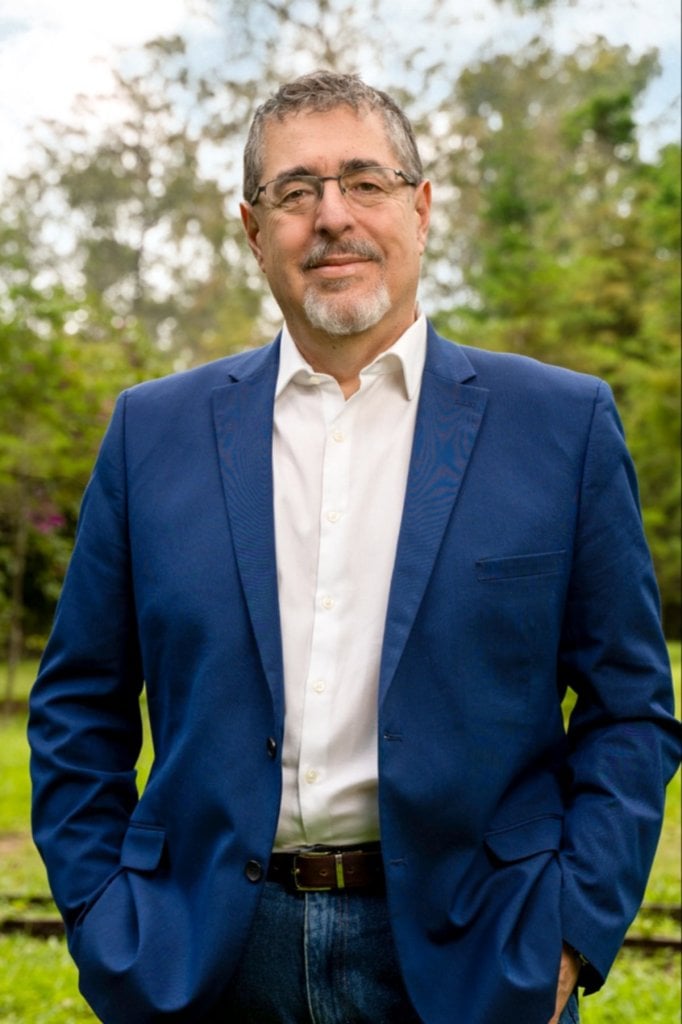Guatemala: Striding from crisis to a brighter future
Having undergone an historic institutional crisis, Guatemala’s new administration is plotting a path to boost inward investment and usher in a new era of stability to drive forward the region’s largest economy

Photo by: Marcel Houdelot
After coming through the deepest institutional crisis of its history, Guatemala is preparing a strategy in order to start living up to its promise as Central America’s largest economy by reasserting its democratic principles and encouraging investment flows to unlock its full potential.
Despite boasting macroeconomic stability, a strategic location, and a plethora of investment opportunities, the country has historically grappled with a lack of foreign direct investment (FDI). However, recent developments signal a shift in this narrative, with Guatemala readying itself to emerge as a beacon of economic opportunity in the region.
In January Bernardo Arévalo was sworn in as Guatemala’s president with the backing of the international community after overcoming concerted efforts to derail the transfer of power and prevent his inauguration. Now, Arévalo’s administration is focused on restoring prestige to the country’s institutions and using its legitimate power to bring improvements to the lives of Guatemala’s 18 million inhabitants.
Now, Arévalo’s administration is focused on restoring prestige to the country’s institutions and using its legitimate power to bring improvements to the lives of Guatemala’s 18 million inhabitants.
“We are implanting what I call the three R’s: rescuing our institutions from the asphyxiating embrace of corrupt appropriation; rebuilding those institutions so they can perform the function for which they were intended; and responding to the needs of the population,” said Arévalo.

And there are increasing signs that the economy is moving in the right direction. According to data released by Guatemala’s Central Bank, foreign direct investment (FDI) rose to $1.55 billion in 2023, marking an 8% increase from the previous year and the second-highest inflow since 2008. For 2024 the government has reaffirmed its commitment to create the necessary conditions to encourage more private investment from within and outside the country.
Invest Guatemala, the country’s private investment promotion agency, is generating tailored strategies to attract investments in key sectors, including apparel and textiles, light manufacturing, pharmaceuticals and medical devices, biotech, electronic manufacturing services, BPO and IT outsourcing, as well as sustainable tourism. The goal is to grow annual FDI beyond the $2-billion mark in the short term.
In terms of economic performance, Guatemala’s trajectory is equally promising. Despite global headwinds, GDP grew by an encouraging 3.5% in 2023. Looking ahead, growth drivers for 2024 encompass a spectrum of sectors, including banking and financial services, real estate and mining, underpinning the nation’s diversified economic landscape.
Investors can count on Guatemala’s robust financial system, coupled with the lowest government debt in Central America at 27.2% of GDP. Prudent fiscal management is also evident in Guatemala’s fiscal deficit, which stood at a mere 1.3% of GDP in 2023. Other hallmarks of Guatemala’s financial system are low levels of non-performing loans, ample liquidity, and robust solvency.
Free trade agreements encompassing over 40 countries and including the DR-CAFTA accord with the US mean Guatemala provides a base with broad access to global markets, facilitating seamless trade and commerce. Guatemala also offers a suite of fiscal incentives and special regimes aimed at bolstering investment attractiveness, including income tax exemptions, VAT and tariff duty exemptions, and a foreign investment law guaranteeing equal treatment for both domestic and foreign investors.
President Arévalo believes the drive to provide legal stability will in turn encourage much-needed investment and enable his administration to boost Guatemala’s infrastructure and human capital, citing plans to roll out public-private partnerships (PPPs) for growth.
“We are convinced that the state needs to boost significantly the levels of public investment in infrastructure for our development,” he said.
Through initiatives like the Guatemala Moving Forward (Guatemala No Se Detiene) plan, which fosters collaboration between the private sector, government, and academia, Guatemala is charting a course towards enhanced competitiveness and a more favorable business climate. Improvements to Guatemala City’s airport, major and minor highways, and the country’s ports are seen as key developments in a more dynamic future economy.
In terms of energy, more than 70% of Guatemala’s electricity is generated from renewable sources, underscoring the nation’s commitment to sustainable development and environmental stewardship.
Arévalo’s presidency has received support from the US Administration, with Guatemala’s leader present at the White House for a bilateral meeting in March. Noting that the “will of the Guatemalan people, by our observation, has triumphed,” Vice President Kamala Harris announced an additional $170 million in US funding for development, economic, health, and security assistance in Guatemala.
Arévalo claimed “a new foundation had been laid” for US-Guatemala relations, part of the country’s strategy of becoming a bigger player on the international stage as a reliable partner for economic partnership and human development.
“What the international community can expect to find in Guatemala is a transparent and open partner for any collaborative strategy that leads to the improvement of the conditions for the development of both democratic institutions and the well-being of the people who live in our countries,” Arévalo concluded.

 Download the PDF
Download the PDF